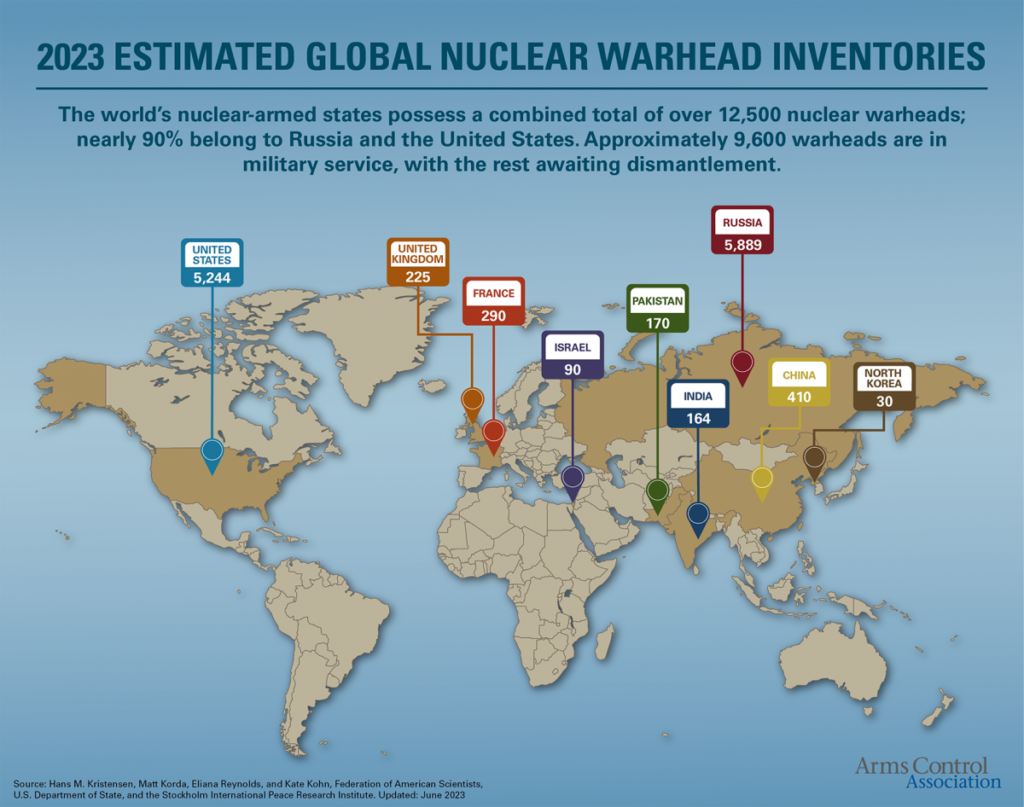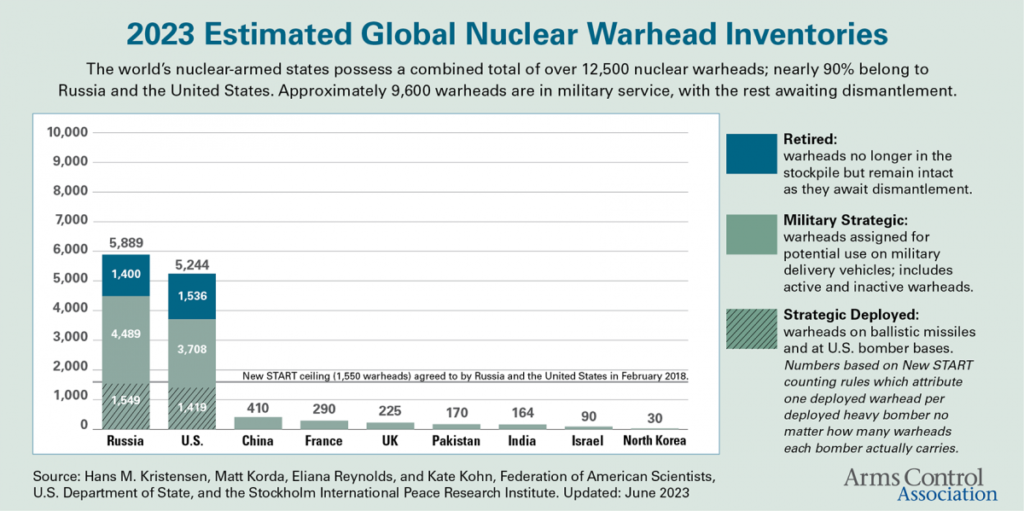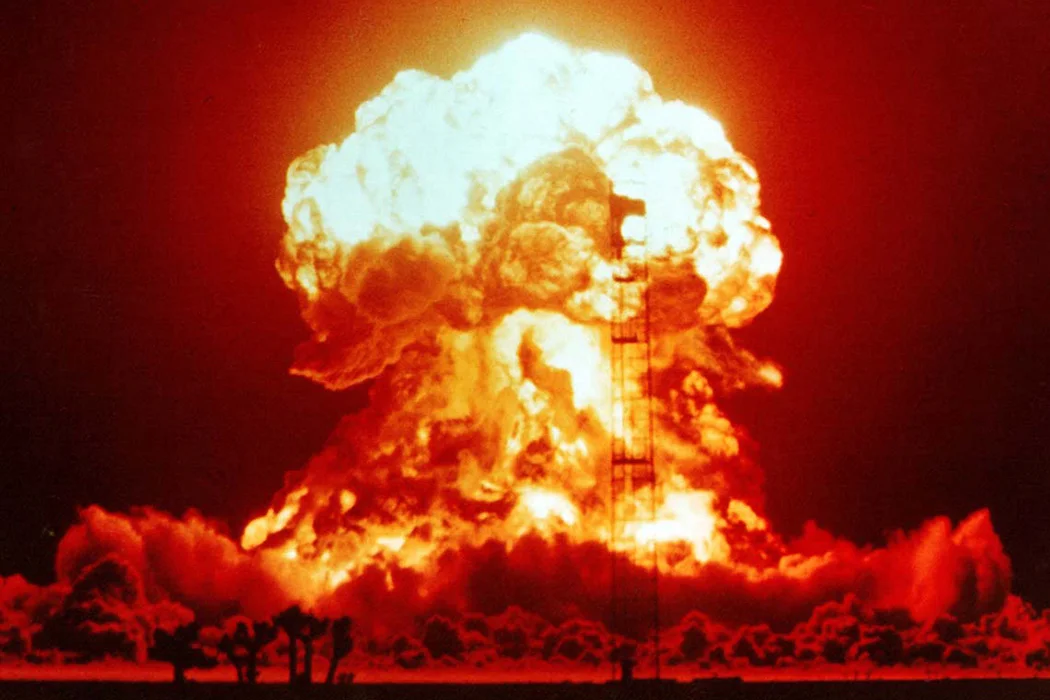North Korea and Iran may be pushing ahead with their nuclear plans and Vladimir Putin may have threatened to use Russia’s weapons, but important red lines have not been crossed, a top expert told AFP.
“The nuclear order might be assailed, shaken and contested, but its foundations are still solid and its most essential elements are still there,” French nuclear expert Bruno Tertrais said in an interview.
“North Korea, China, India and Pakistan remain determined to establish themselves as mature nuclear powers, and don’t care about entreaties to moderate, let alone disarm,” said Tertrais, deputy director of the Foundation for Strategic Research (FRS), a French think-tank.
Iran is continuing its enrichment of uranium to levels far higher than 3.67 percent, in violation of a near-defunct 2015 deal with Western powers, and is closing in on the 90 percent needed to produce an atomic bomb.
Meanwhile North Korea last year enshrined its status as a nuclear power in its constitution and has since fired several intercontinental ballistic missiles, in violation of UN resolutions.
On Friday, Pyongyang said it had tested an “underwater nuclear weapon system” in response to joint naval exercises by Washington, Seoul, and Tokyo that involved a US nuclear-powered aircraft carrier.
Recent months have seen a sharp deterioration in long-tense ties between the two Koreas, with Kim Jong Un declaring the South his country’s “principal enemy.”
Tertrais said the North’s aggressive stance was part of a “policy of dissuasion”.
“I haven’t read anything in North Korea’s latest statements that constitutes a break with what it has been saying for some twenty years,” he said.
“Already in the late 90s, North Korea threatened to transform Seoul into a sea of fire,” he said.
“North Korea is continuing the patient and determined build-up of a fully operational nuclear force,” Tertrais added.
But Pyongyang also wanted to remind the world about its program after global powers turned their focus to the conflicts in Ukraine and Gaza, the expert pointed out.
On the Russian side, the unraveling of the Cold War nuclear arms control architecture began with Washington’s 2001 withdrawal from the Anti-Ballistic Missile (ABM) Treaty, signed in 1972.
Last year, Russia suspended its participation in New START, the last remaining nuclear weapons treaty between Washington and Moscow.
“In terms of bilateral arms control, we’re coming to the end of a cycle,” Tertrais said.
But he argued that this did not mean Russia and the United States were going to resume an arms race, even though both powers have been modernizing their arsenals.
“Vladimir Putin’s ‘exotic’ nuclear weapons” — such as hypersonic missiles designed to overcome all enemy defenses — “have not yet shown that they will produce strategic breakthroughs,” Tertrais said.
The cornerstone Nuclear Non-Proliferation Treaty, which entered into force in 1970, is still in place, he pointed out, even though North Korea announced its unilateral withdrawal in 2003.
Tertrais also said that nuclear proliferation has remained limited over the past 80 years.
Only nine states — the United States, Russia, China, France, Britain, India, Pakistan, Israel, and North Korea — possess nuclear weapons.

“For almost 20 years, no country other than Iran has shown the will to become a nuclear power,” he said.
Taboos surrounding the testing and use of atomic weapons remain strong.
Tertrais noted that there had been no confirmed nuclear tests anywhere in the world for the five past years, adding that the nuclear deterrence doctrine still holds.
“What’s happening in Ukraine confirms what we’ve known for a long time,” he said.
“When the shadow of nuclear weapons is cast over a conflict and several militarily and politically involved parties possess this weapon, a certain degree of caution is enforced on both sides.”
Since Russia invaded Ukraine in 2022, Putin has intensified threats to use destructive weapons should the country face an existential threat.

Tertrais remains skeptical, saying that “if Russia really wanted to scare us, by raising the nuclear threat, it would have made some unusual moves, some unusual exercises. But this has not been the case.”
“Yes, the risks of misunderstanding and poorly managed incidents do exist, but I see no reason to believe that they are any greater today than they were 10 years ago, before the invasion of Crimea”, he said.
Tertrais allowed that increasingly authoritarian regimes could become “yet more paranoid”.
But he added: “If there’s one area in which Russia is still showing itself to be reasonable, it’s nuclear weapons, which in my view shows that Putin hasn’t lost touch with strategic realities.”




